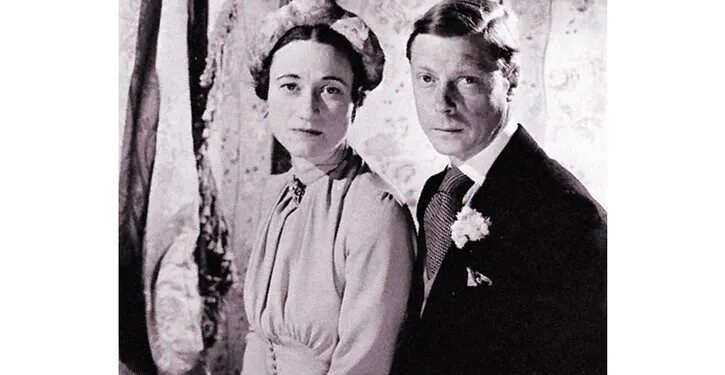In December 1936, the British Empire witnessed an unprecedented royal drama that would forever change the course of monarchical history. King Edward VIII, who had ascended to the throne in January of that year, made the extraordinary decision to abdicate after just 326 days, choosing love over the crown.
Edward VIII had fallen deeply in love with Wallis Simpson, an American divorcée who was considered unsuitable as a potential royal consort. At the time, the Church of England and British social conventions prohibited the monarch from marrying a divorced woman, especially one with two living ex-husbands.
The crisis began to unfold publicly in November 1936 when the British media, which had previously maintained a respectful silence, began reporting on the king’s relationship with Mrs. Simpson. The British government, led by Prime Minister Stanley Baldwin, made it clear that Edward could not remain king if he insisted on marrying her.
Faced with an impossible choice between his crown and his love, Edward ultimately chose Wallis Simpson. On December 11, 1936, he signed the Instrument of Abdication, becoming the first British monarch in history to voluntarily renounce the throne. His passionate radio broadcast to the nation captured the emotional weight of his decision, famously stating that he found it impossible to carry out his duties “without the help and support of the woman I love.”
After his abdication, Edward was granted the title of Duke of Windsor and left Britain. He married Wallis Simpson in 1937 in a ceremony in France, effectively exiling himself from the royal mainstream. His younger brother, who became King George VI, granted him a limited allowance but maintained a considerable distance.
The abdication crisis sent shockwaves through the British Empire and fundamentally altered the royal succession. His brother Albert became King George VI, and subsequently, the line of succession shifted to include his daughter, the future Queen Elizabeth II.
Historians have long debated the motivations behind Edward’s decision. Some viewed it as a romantic gesture of unprecedented magnitude, while others saw it as a potential constitutional crisis that could have destabilized the monarchy during the turbulent years leading to World War II.
The abdication remains one of the most dramatic moments in modern British royal history, a testament to the complex intersection of personal desire, social expectations, and royal duty.
newshub



Recent Comments